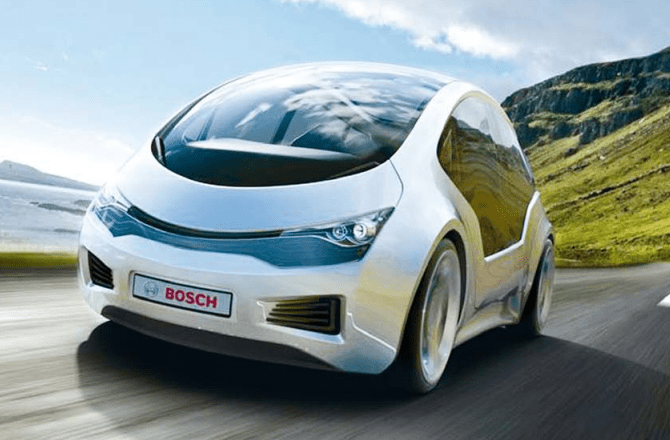Bosch made additional initial investments of around €700 million in electromobility in 2021, including fuel cells.
Already sales in this field have surpassed the 1 billion euro mark.
Bosch’s goal remains to increase its sales in this area to 5 billion euros by 2025.
In electromobility, the strategy is to use its extensive product portfolio to take a leading market position in this promising area.
The portfolio comprises components such as electric machines, electric axles (as a complete drivetrain), power electronics and 48-volt batteries.
There is a high level of similarity both between the components used in purely battery electric and plug-in hybrid vehicles and between those used in passenger cars and commercial vehicles.
In addition, electric machines and inverters are not only designed for battery-powered vehicles, but are also in principle suitable for vehicles powered by fuel cells.
For fuel cell propulsion systems, the company aims to offer a comprehensive portfolio of components, modules and cells.
Also the expansion of the hydrogen infrastructure will play a role in its acceleration.
To spread risk and accelerate market entry, Bosch has partnered with commercial vehicle manufacturers Qingling Motors, Nikola, Iveco and Weichai.
In 2021, Bosch joined forces with commercial vehicle manufacturer Qingling Motors to establish the Bosch Hydrogen Powertrain Systems joint venture in Chongqing, China.
Bosch
The new company will develop, assemble and market fuel cell systems for the Chinese market.
A test fleet of Qingling trucks equipped with Bosch fuel cell modules has been on the road since 2021.
The company has concluded a long-term supply agreement with Cellcentric, a joint venture between Daimler Truck and the Volvo Group, following a major order for electric air compressors with integrated power electronics.
These compressors regulate the oxygen supply in the fuel cell system and will be part of the Cellcentric fuel cell system that will be featured in heavy duty trucks and stationary applications.
After several years of development, the company also started volume production of silicon carbide power semiconductors in 2021. These will expand the range of electric vehicles.
![]()

